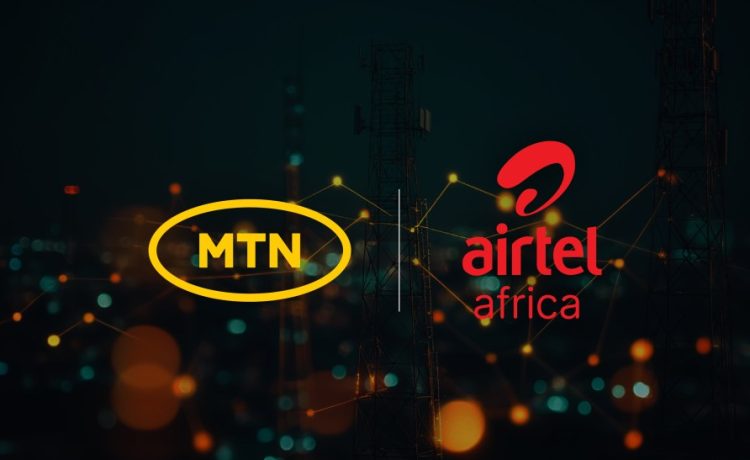- MTN Group and Airtel Africa have signed a network infrastructure-sharing agreement in Nigeria and Uganda. The deal aims to reduce costs and expand connectivity in underserved regions. By sharing infrastructure, the two companies plan to improve service delivery, especially in rural areas with limited access to digital services.
New Models for Network Collaboration
The agreement includes sharing models such as Radio Access Network (RAN) sharing and fibre infrastructure partnerships. Where necessary, the companies will build new fibre networks. This collaboration allows both MTN and Airtel to improve coverage and reduce the costs of expanding infrastructure in remote areas.
Addressing FX Losses and Reducing Investments
Both MTN and Airtel control significant portions of Nigeria’s telecom market, with MTN holding 51.79% and Airtel 34.11%. However, they have faced challenges from foreign exchange (FX) losses due to the naira’s depreciation. As a result, both companies have reduced their investments in network infrastructure to manage rising operational costs.
MTN’s Commitment to Africa’s Growth
Ralph Mupita, MTN Group CEO, highlighted the growing demand for data services across Africa. He emphasized the need for strategic investments to meet this demand. “At MTN, we are focused on providing digital solutions that drive Africa’s progress,” Mupita said. He added that the company will continue to invest in coverage and capacity while exploring ways to improve operational efficiency.
Expanding the Partnership Across Africa
Following agreements in Nigeria and Uganda, MTN and Airtel are also looking into similar network-sharing initiatives in other African countries. These include Congo-Brazzaville, Rwanda, and Zambia. By sharing infrastructure in these markets, both companies aim to improve digital and financial inclusion across the continent.
Airtel’s Approach to Cost Efficiency
Airtel Africa’s CEO, Sunil Taldar, praised the partnership as a practical approach to building robust digital infrastructure. “We are working within the regulatory framework to create a more efficient and extensive digital network,” Taldar said. He noted that this partnership would help avoid duplicating costly infrastructure and drive operational benefits for customers.







